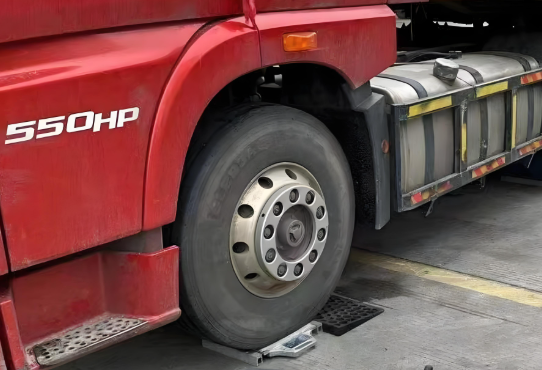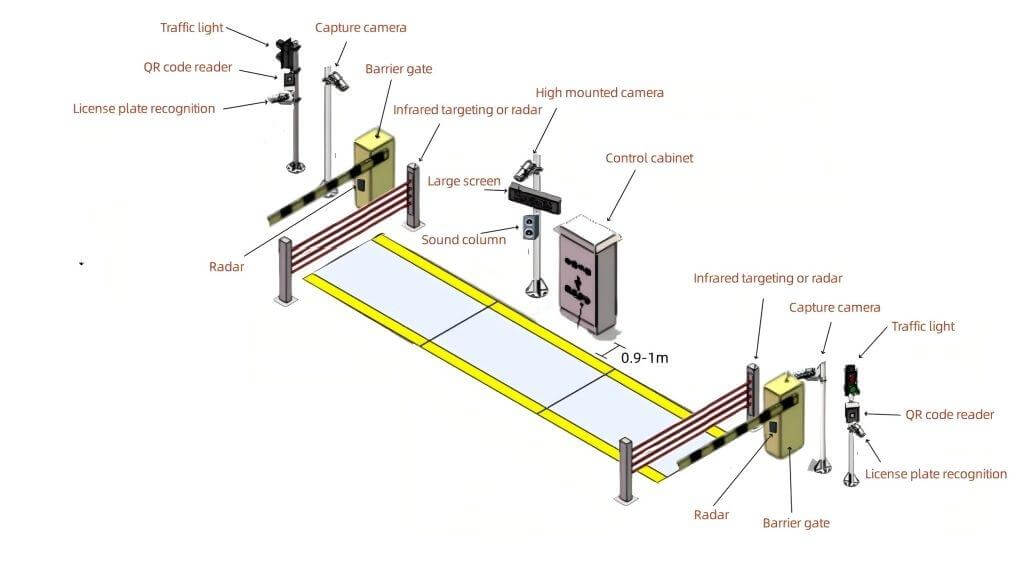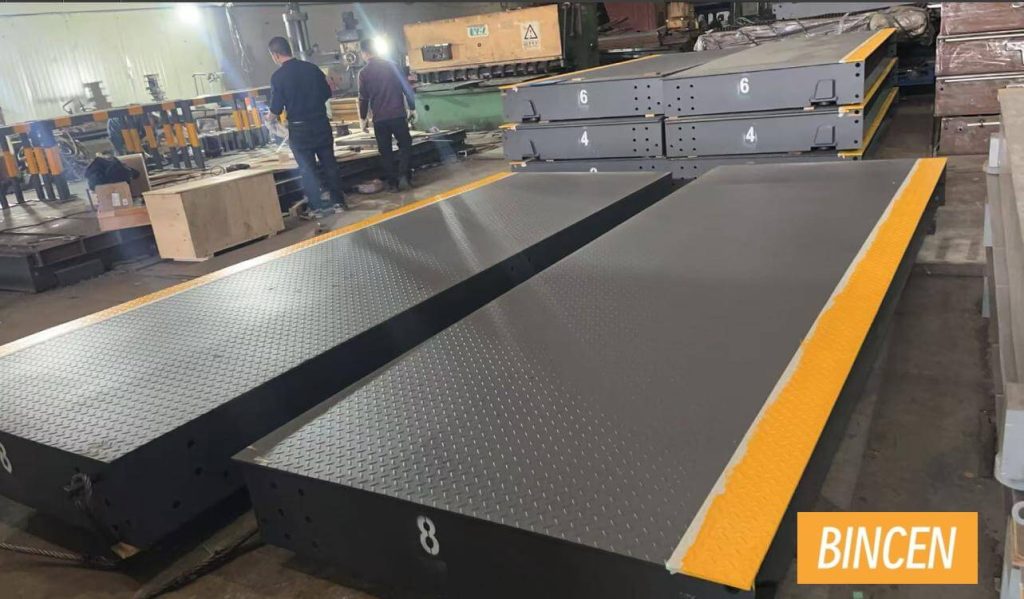How to Use Truck Scales? – Step by Step Guide
In the modern transportation industry, accurate weight measurement is essential for ensuring compliance and improving operational efficiency. Truck scales play a crucial role in this process by enabling businesses to perform precise weighing, thereby improving management standards.
In this post, we will explore various aspects of truck scales and provide a detailed guide on how to use truck scales to better serve you and your business.
Part 1. What are the Types of Truck Scales?
Truck scales are essential equipment in the transportation and logistics industry. Depending on their design and purpose, they can be categorized into various types. Below, we will provide a comprehensive overview of several common types of truck scales and their features.
Weighbridges
Weighbridges are large truck scales specifically designed for high-capacity weighing, which are typically used for commercial purposes. They are capable of handling multi-axle vehicles and make them ideal for large logistics companies.
Features:
- High Load Capacity: Can support the weight of heavy-duty vehicles and meet the needs of the transportation industry.
- Multi-Axle Weighing: Capable of weighing multiple axles simultaneously, improving operational efficiency.
- Robust and Durable: Generally made from high-strength materials to withstand harsh environments and heavy loads.
Fixed Truck Scales
Fixed truck scales are permanently installed at specific locations, which are commonly used for commercial weighing, such as in logistics centers and freight stations. These scales offer high precision and stability, making them ideal for large-scale weighing needs.
Features:
- High Accuracy: Designed and calibrated for precise weighing results.
- Strong Durability: Made from strong materials that can withstand heavy loads over extended periods.
- Data Recording: Many fixed scales come equipped with data recording systems that automatically store weighing information for future reference and management.
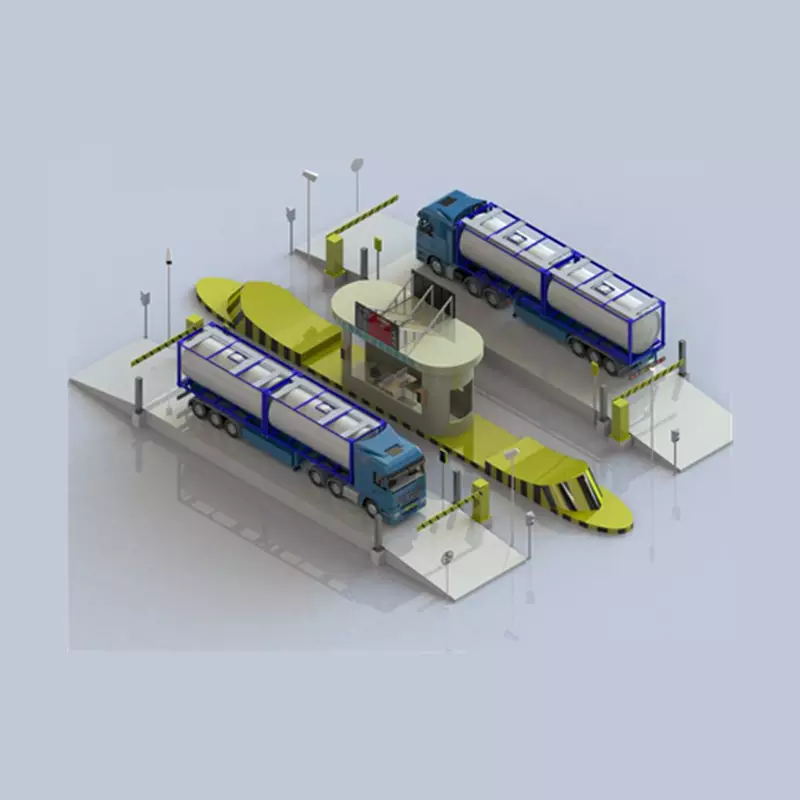
Portable Truck Scales
Portable truck scales are usually lightweight, flexible in design, and easy to move and install. They are suitable for temporary weighing needs, such as on construction sites, at events, or for mobile businesses.
Features:
- Lightweight and Portable: Can be relocated as needed.
- Easy Installation: Generally requires no complicated installation procedures, making it suitable for short-term use.
- Strong Adaptability: Can be used in various terrains and environments.
Pit Scales
Pit scales are embedded in the ground, enabling trucks to drive directly onto the scale for weighing without stopping. This design is particularly suitable for high-traffic environments like logistics centers and freight stations.
Features:
- Reduced Waiting Time: Trucks do not need to stop, reducing queue times during weighing.
- Increased Efficiency: Suitable for busy operational environments, improving work efficiency.
- High Safety: Ground installations reduce safety hazards due to height differences in equipment.
Part 2. How Does Truck Scales Work?
The working principle of truck scales is based on load sensors.
When a truck drives onto the scale, the load sensors measure the pressure exerted by the wheels and convert it into an electrical signal, which is then displayed as accurate weight data on the display system.
The accuracy of this process depends on regular calibration and maintenance to ensure the scale operates reliably over the long term.
Part 3. 5 Steps to Use Truck Scales
The process of using a truck scale is relatively simple, but it is very important to follow certain steps to ensure accurate and safe weighing. A how to guide is provided below to help you effectively use a truck scale.
Step 1: Slow Down as You Approach the Truck Scale
Slowly approach the truck scale, following any signs posted. Look for the designated truck lane and follow the signs to the weigh station.
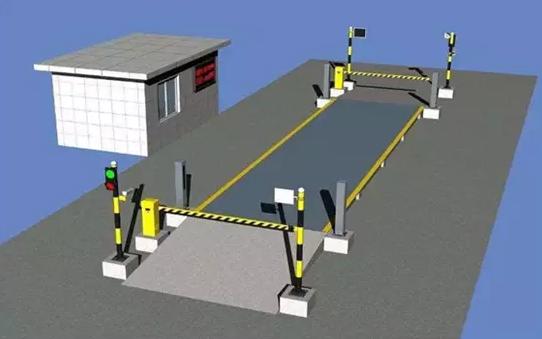
Step 2: Drive Onto the Scale
Carefully drive your truck onto the scale, ensuring that the wheels are centered on the scale. Avoid driving too fast to minimize vibrations and mistakes. As you approach the scale, slow down to maintain safe driving.
Step 3: Ensure the Entire Vehicle is on the Scale
If your vehicle has a trailer attached, make sure the trailer is also on the scale. Once the scale is fully set, come to a complete stop to begin the weighing process.
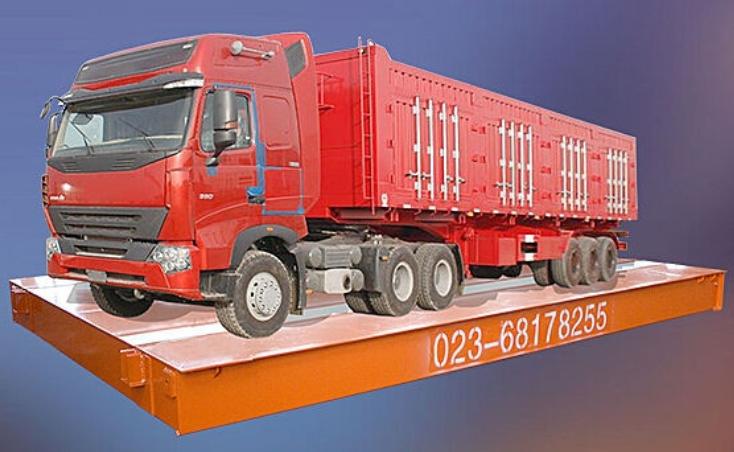
Step 4: Check the Weighing Results
The weighing system will display the total weight of your vehicle and may provide an ID number. Wait a few seconds before being instructed to leave the scale.
Step 5: Obtain Weighing Data
Enter your ID number, and the system will print out the gross weight, tare weight, and net weight. Drive off the scale carefully and continue on your way.

Part 4. Why Should Weigh the Truck?
The importance of weighing trucks is reflected in several aspects:
Compliance: Ensures that vehicles are not overloaded, adheres to laws and regulations, and avoids fines and other legal liabilities.
Safety: Overloading can affect vehicle handling and increase the risk of accidents; weighing enhances road safety.
Operational Efficiency: Accurate weighing helps businesses optimize transportation plans, reducing fuel consumption and costs.
Fairness in Transactions: Accurate weighing in commercial transactions ensures fair interests for both buyers and sellers.
How Bincen Helps Every Step of the Weigh?
As a leading truck scale manufacturer, Bincen provides comprehensive support throughout the entire weighing process. it provides a wide range of high-quality truck scales to meet diverse customer needs, along with installation and operational guidance for quick setup.
Bincen also conducts regular maintenance and calibration to guarantee long-term accuracy and reliability. Bincen’s intelligent software system enables real-time monitoring of weighing data, improving management efficiency. With Bincen’s support, businesses can effectively tackle weighing challenges and achieve efficient, safe transportation management.

